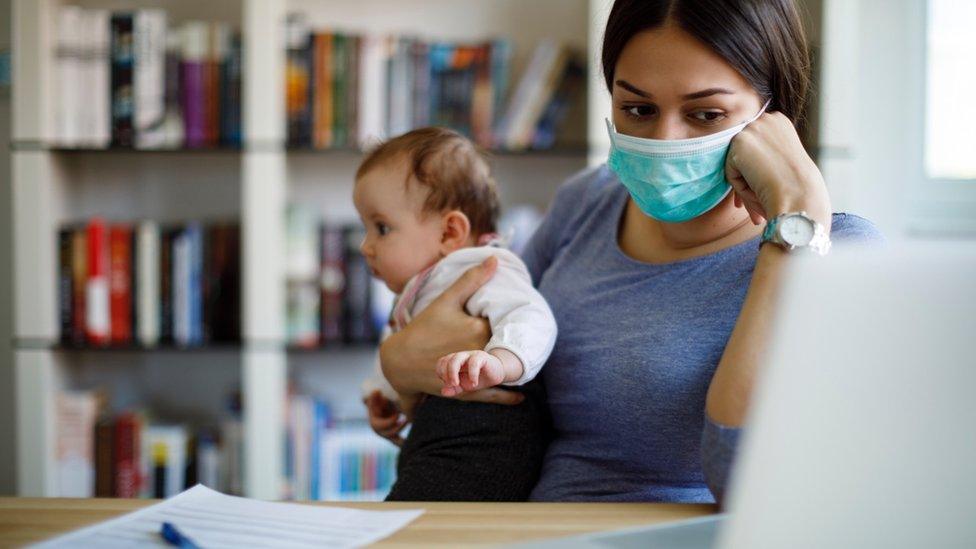'A big supermarket shop feels frivolous now'
- Published
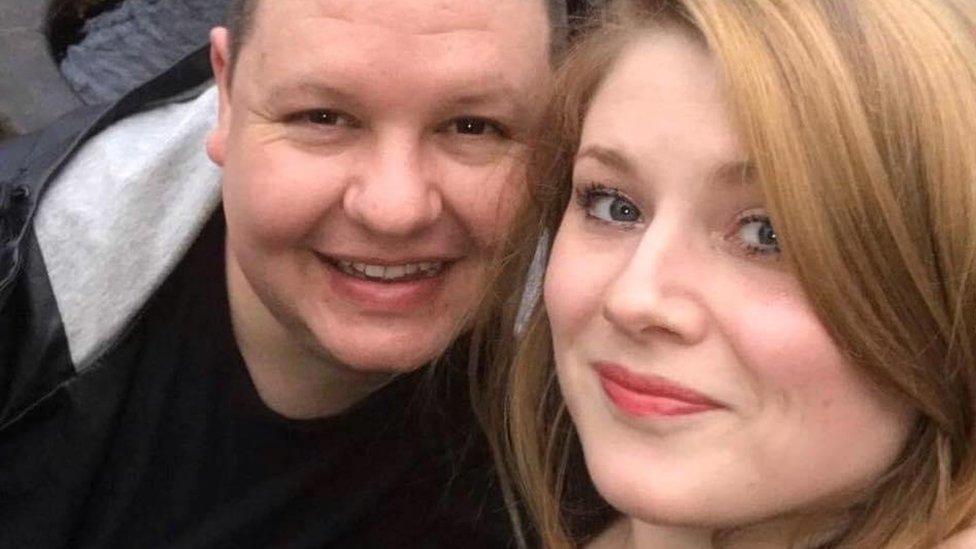
Siobhan and Steve are among many who have had to tighten their belts
Siobhan Walker has worked seven days a week for the last six weeks, and there's still no day off on the horizon.
Her partner Steve, a musician, lost most of his work when the pandemic hit, so as well as her main job as a financial assistant Siobhan works in the local petrol station a few evenings and at the weekend.
Even so, they're having to cut back to make ends meet.
"I'm a big shopper. I like treating myself to beauty products, make-up and skincare," says Siobhan. "I've had to rein it in." Getting her nails and eyebrows done are out too.
And the luxury of popping to the supermarket for a trolley-full like they used to strikes Siobhan as "a bit frivolous" now.
"We're more savvy with our shopping. Instead of Tesco and Morrisons, we'll go to Aldi and Lidl or the market to get better deals," she says.
Households across the UK are tightening their belts as the economic consequences of the pandemic eat into incomes. And Blackpool, where Siobhan, 30, and Steve, 37, live, is one of the worst-hit areas.
Since March the numbers looking for work in Blackpool have doubled to around 12% of the local population while job vacancies have fallen by more than a third.
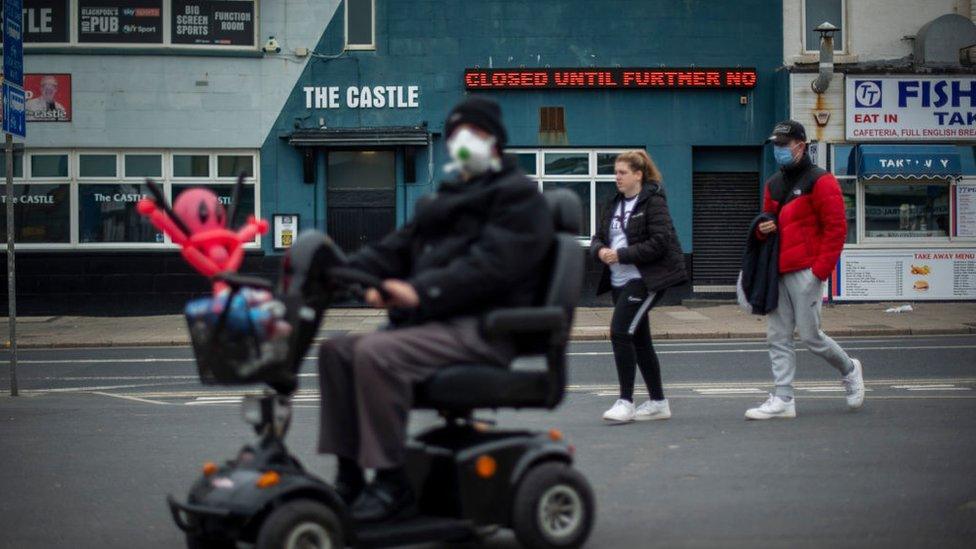
Blackpool has been hard hit in the pandemic
Incomes in Blackpool were already lower than almost anywhere else in the UK before the pandemic, meaning people are less likely to have savings to fall back on or friends and family in a position to help them out.
Nevertheless, Siobhan and Steve are just managing to keep on top of things by taking payment holidays on their car finance and credit cards.
Others haven't been so fortunate. The government moved quickly in March to help protect incomes, increasing universal credit by £20 a week, launching loan schemes for the self-employed and paying businesses to put staff on furlough.
But within that there remained a wide range of experiences. Furloughed workers took home on average 13% less than before, according to analysis by the Institute for Fiscal Studies, external. But those who lost their jobs and moved on to universal credit saw their incomes fall by an average of 40%.
A survey released this week by the Financial Conduct Authority, external suggested that "12 million people in the UK had low financial resilience, meaning they may struggle with bills or loan repayments".
It suggested that almost a third of adults have seen a drop in income, with households seeing income fall by a quarter, on average.
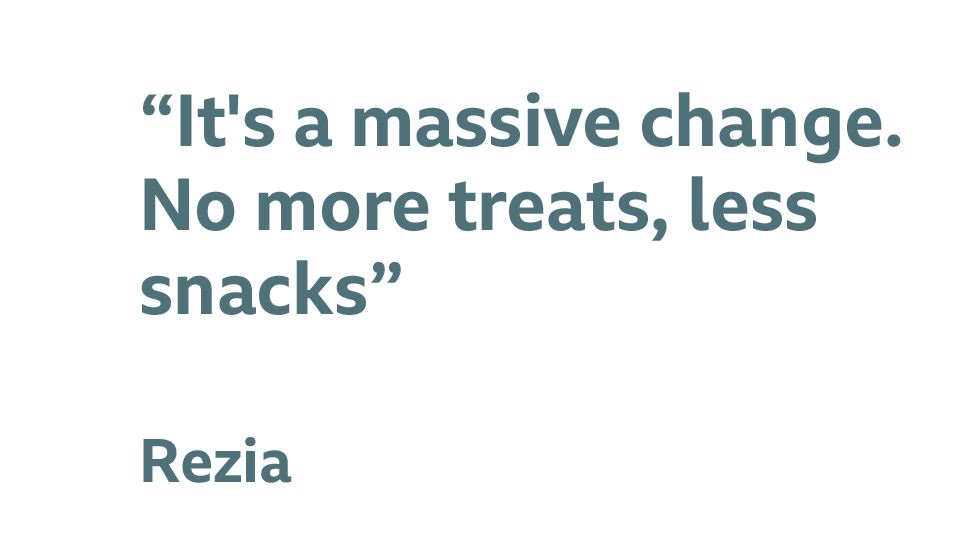
Rezia, 37, who lives in central London, estimates her family is living on around a half of what they had before the pandemic hit, after her husband lost his job as a carer in March.
They are relying on the maintenance loan she gets as a full-time student, while he tries to earn some money "Ubering". But London is still very quiet and business is slow.
Residents of the UK's biggest cities have been hit particularly hard as offices emptied out and the entertainment industry shut down.
"We're trying to stick to a budget," Rezia says.
"It's a massive change. No more treats, less snacks, and for meat, usually in an Asian household you do a monthly shop and put it in the freezer. Now we just go to the shop and get a little bit."
Rezia's daughters have learned not to ask for toys, magazines and chocolate. The only concessions: she has kept her car and her husband has kept his gym membership.

Rezia and her family are having to budget
The biggest change is to their social lives, Rezia says.
"Before we would go to restaurants, have takeaways, go shopping for presents. We used to go to my mum's house with cakes and treats and take her out for coffee or shopping."
At Eid she says the four of them had a picnic in St James's Park instead of the big family celebration that would have been more typical.
Siobhan and Rezia's belt-tightening illustrates one half of the parallel narratives affecting overall spending, says Dave Innes, chief economist at poverty campaign group, the Joseph Rowntree Foundation.
"We have a striking contrast," he says. "If you were someone towards the bottom of the income distribution you're more likely to have had a difficult experience," he says.
"People in the middle or top of the income distribution have been more likely to continue working from home and during lockdown built up savings, and generally are a lot less likely to be in a bad financial position."
Of course some better-off individuals are the ones who have seen the most dramatic falls in income, if they lost well-paid jobs or had to close their businesses. But they are also more likely to have assets to fall back on, says Mr Innes.
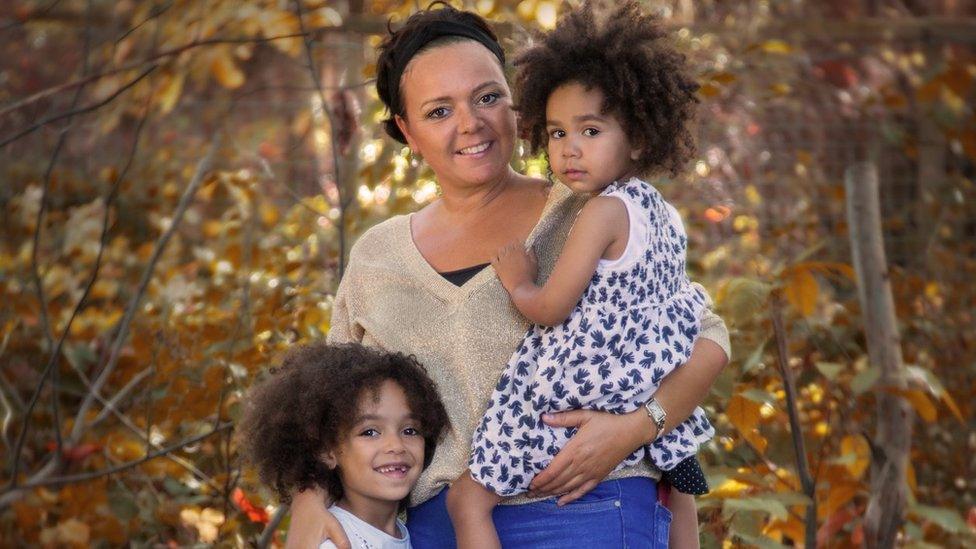
Donia has taken her children out of their fee-paying school to save money and the family plans to relocate to St Lucia for a year
Donia Youssef, for instance, has seen her business Tiny Angels, a modelling and casting agency for children based in London, grind to a standstill with no prospect of reopening for the foreseeable future. She has taken her young children out of private school, cancelled holidays and sold cars.
"It has just put huge pressure on us, so I said to the family let's reroute and rent out this house or sell it and go to St Lucia," she says. Her husband, who has just been laid off from his job, is from St Lucia and Donia can pursue her other business interests in publishing and film almost as easily from there as here.
"We said let's try it for a year. There's nothing to lose. If it doesn't work we've got rentals in the UK we can live off," she says.
Aisling and Jamie Lord, both 40, aren't quite so fortunate. They both lost their jobs and are now claiming universal credit, about £1,000 a month.
Before this summer, they took home eight times that between them, through her work in human resources, and his as a customer experience manager.
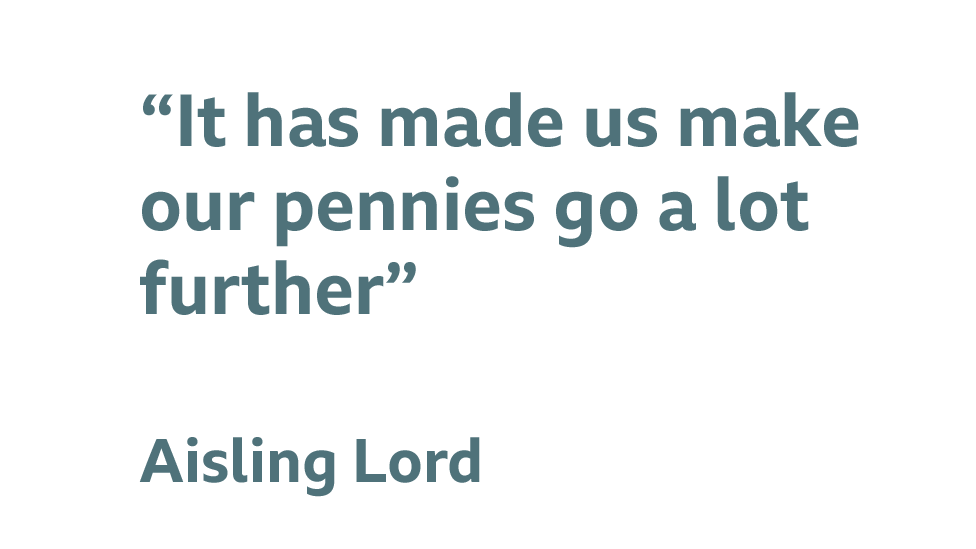
They've cancelled the children's football clubs, maths tutors, swimming lessons and cut out having wine with dinner. Instead of buying Halloween decorations they'll be making them out of whatever is in the recycling box.
"A treat before would have been going to a toy store. We wouldn't have blinked an eye if [our daughter] had picked up a doll for £25. Today a treat is a chocolate lollipop," says Aisling.
Despite cutting back on everything they can think of their outgoings are more than their income every month, but luckily, they had savings to fall back on.
Moreover they live in a part of the country, just west of London, where they are hopeful they'll be able to find new jobs thanks to flourishing pharmaceutical and technology industries. But even when they are back in work, they aren't planning to return to their pre-pandemic spending habits.
"To be honest it's been a great financial lesson. It has made us make our pennies go a lot further," says Aisling.
Now she says they're actually a bit frightened of spending again. "We just need to get money and save for the next rainy day. The world has broken once and will break again. We need to hold on to our money."
- Published13 October 2020
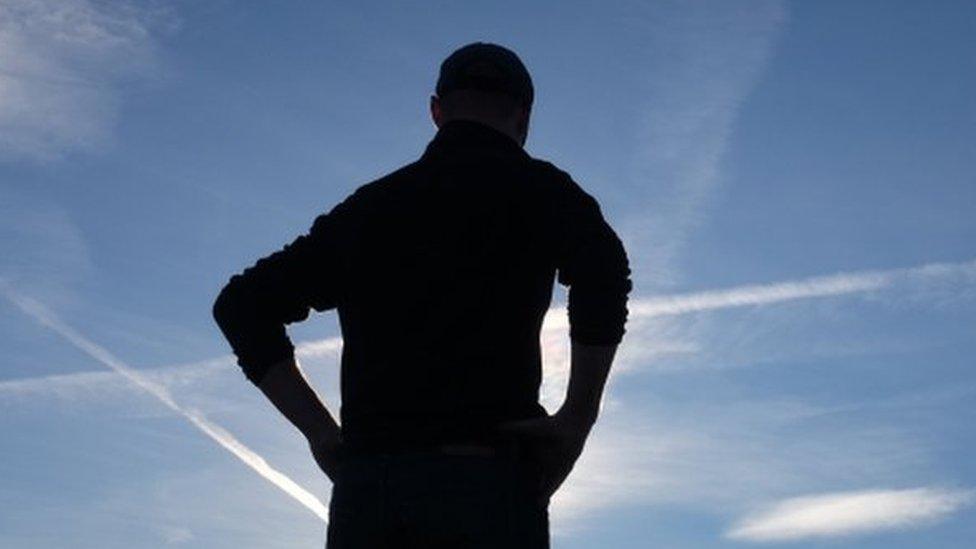
- Published16 October 2020
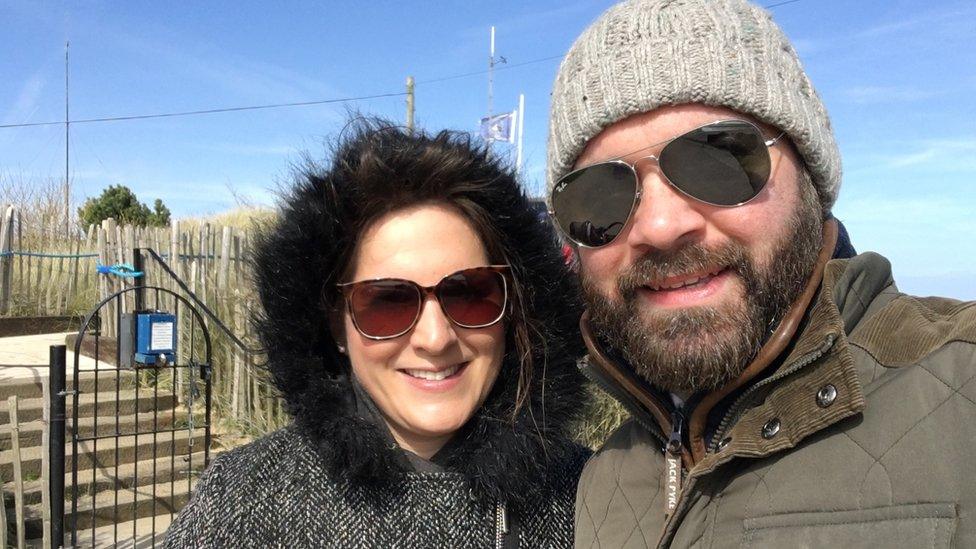
- Published4 October 2020
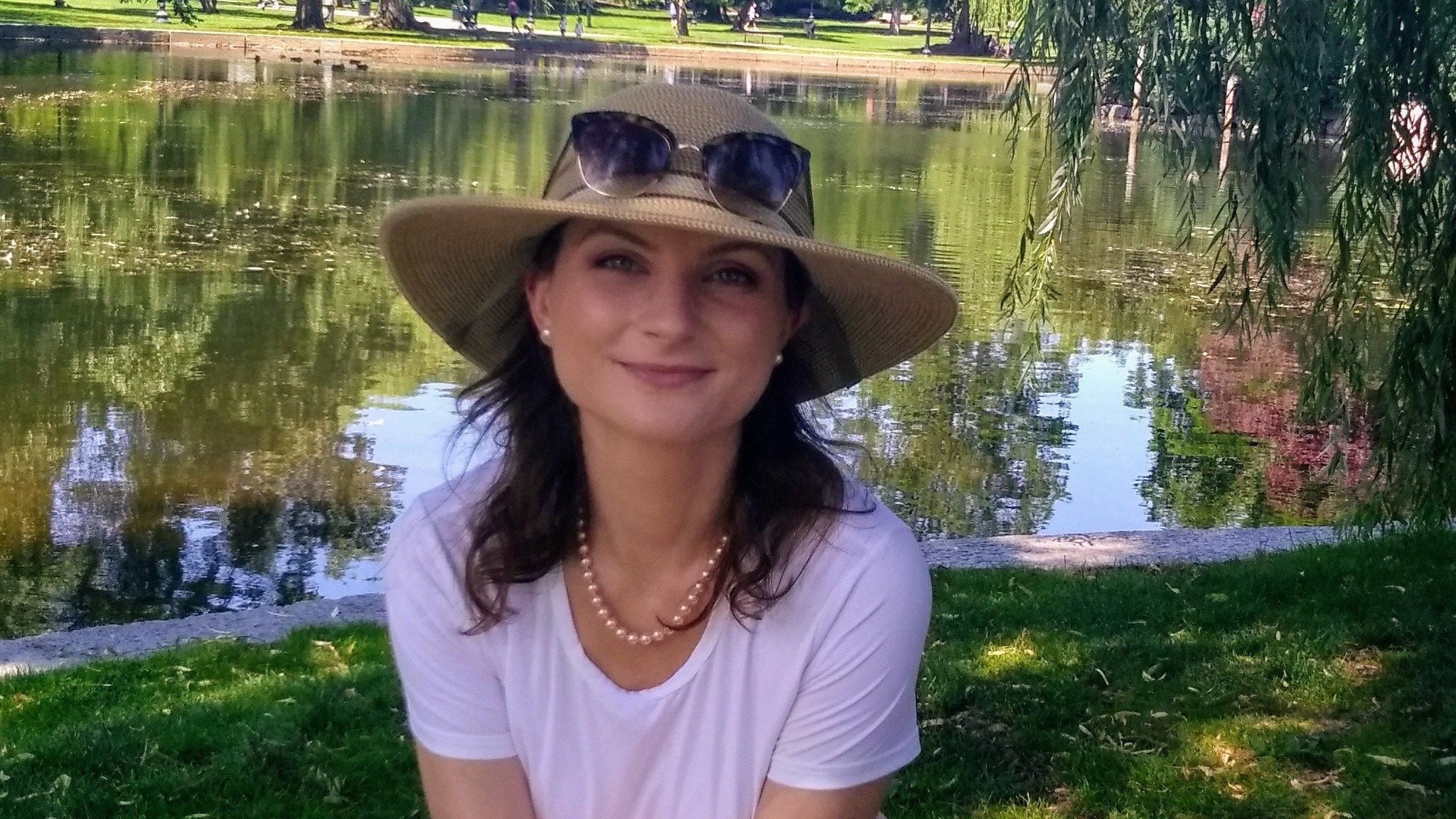
- Published30 June 2020
